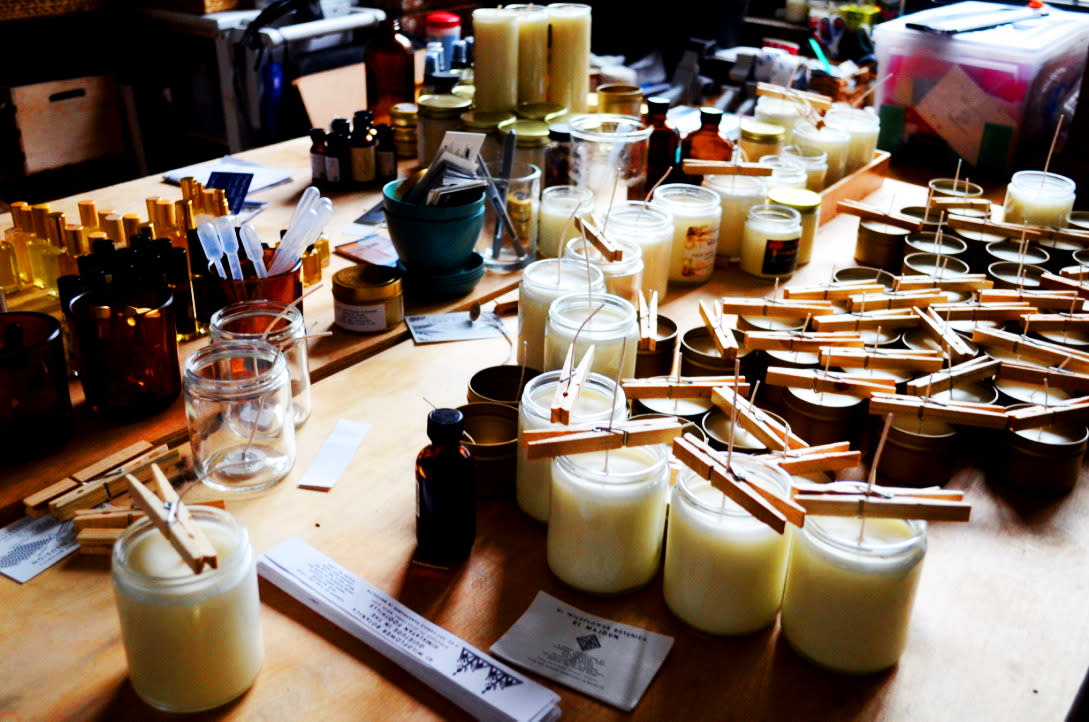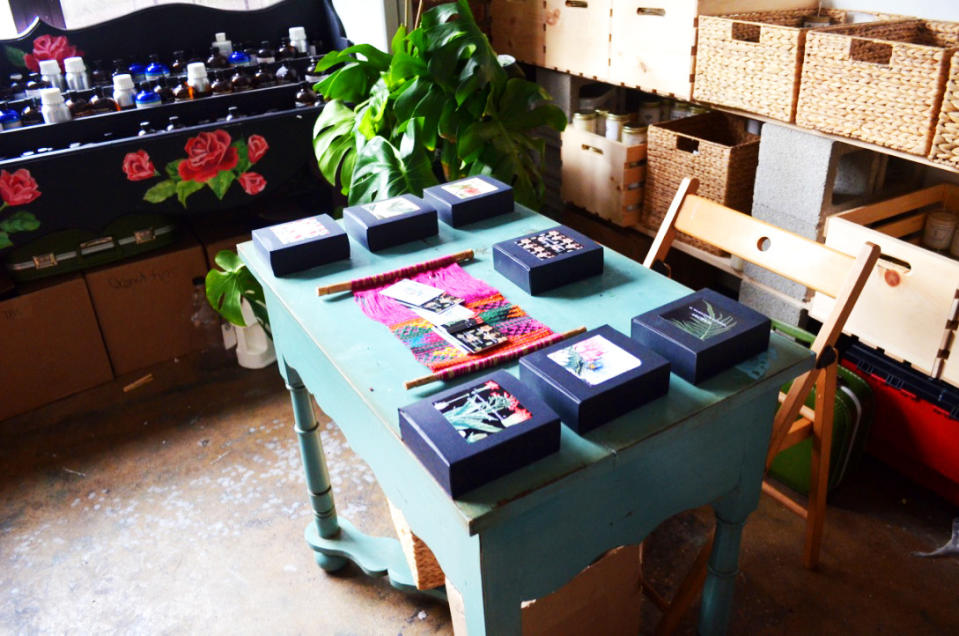Inside a Small-Batch Perfume Studio in Brooklyn

Tanwi Nandini Islam of Hi Wildflower makes all candles and perfumes by hand. (Photo: Noël Duan)
As a beauty editor, I get blasted with press releases about new fragrances lines every day, and I love it, mainly because it’s an excuse to talk about experiences and memories with a complete stranger. When I first met Brooklyn-based fragrance line creator, Tanwi Nandini Islam of Hi Wildflower, she immediately dove into telling me about her line of perfumes and candles. But turns out, she’s not just a perfume entrepreneur — Islam is also a novelist. Her debut novel, Bright Lines, was published in August 2015 and was shortlisted for the 2015 Center for Fiction First Novel Prize. Her next novel involves a character who is a perfumer — and as matter of fact, the path of research and storytelling led Islam into discovering perfume as a self-described passion and obsession.

“I’m probably more spendy and foolish about oils than I should be because I’m addicted to finding new things.” (Photo: Noël Duan)
“I’m really into scent, memory, storytelling, chemistry, science, and I feel like perfume is the syncretic hybrid creation of all these different things,” Islam explained to Yahoo Beauty at her studio. “There’s dynamics of power and colonialism and travel and all these crazy shit. Like, you could study in the history of spices, perfume, incense, all this stuff. And you would uncover so many important moments of human history.” The perfume collection so far includes four all-natural fragrances and five fragrances made of a mix of synthetics and naturals. “I am drawn to things that are very, very natural for the key components of the fragrance,” she said. Contrary to popular belief, not all the notes that go into a fragrance smell pleasant. “This is from the s— of a cat in Africa,” she told me, wafting a bottle of civet under my nose. “You need that s—. You need that stinkiness to create a full-rounded perfume.”

Inside the studio of Brooklyn-based fragrance brand Hi Wildflower. (Photo: Noël Duan)
Hi Wildflower markets itself as small-batch, which is a phrase that has become endemic to Brooklyn’s products — but Islam isn’t trying to play into artisanal stereotypes and jokes about the trendy borough. “I am a writer. We don’t make that much money and my family’s not wealthy,” she said. “I don’t have an investor. So this is all bootstrapped.” Her first labels were from CheapLabels.com, and once she sold her first batch of 70 fragrances, she made another batch and upgraded the quality of her packaging. She still makes her fragrances one batch at a time in her Brooklyn studio, but nowadays the packaging has become more luxe, with bigger bottles and custom botanical illustrations.

Just-made batches of Hi Wildflower fragrances. (Photo: Noël Duan)
The nine fragrances are inspired by Islam’s own personal memories in life — but she’s hoping they invoke memories and stories in others, too. She grew up smelling Attars, which are oil-based sandalwood-seeped perfumes from India. The Hi Wildflower Night Flower Eau de Parfum ($65), for example, is inspired by her grandmother, who wore jasmine Attar. “But it wasn’t like I always loved my mother’s perfume,” she added. Her mother wore Nina Ricci L'Air du Temps, a scent invented after the Second World II that is considered to be one of the finest women’s fragrances of all time. “I think it got played out,” she said. “A lot of these perfumes get played out because they have mass appeal.”
The perfume industry, with roots stretching back to colonial expansion, is dominated by French male perfumers like Jean-Claude Ellena of Hermès, Jean-Paul Guerlain of Guerlain, and Jean Carles of Roure (now part of Givaudan, a Swiss manufacturer of fragrances). “They’re all named Jean!” Islam pointed out, noting her own position as a woman of color. “They’re all white men.” She is currently enrolled in a perfume class at Pratt Institute in order to fine-tune her knowledge of the competitive industry. “When [the instructor] said that a real perfumer goes to France and learns from a master perfumer, I’m interested in taking it to that level,” she explained. “This is the beginning of my new phase of my life.” As a young woman of Bangladeshi heritage, Islam is hoping to be part of a movement of new perfumers who are changing the dialogue on what scents are used — and what stories are told — in the Eurocentric, male-dominated industry.
Related:
How to Make Your Fragrance Last All Day

